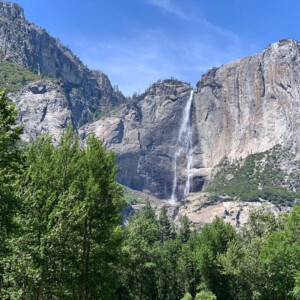
Psalm 118:22-29 - "The Stone the Builders Rejected..."
 2024-01-04
2024-01-04
22 The stone which the builders rejected Has become the chief cornerstone.
23 This was the LORD'S doing; It is marvelous in our eyes.
24 This is the day the LORD has made; We will rejoice and be glad in it.
25 Save now, I pray, O LORD; O LORD, I pray, send now prosperity.
26 Blessed is he who comes in the name of the LORD! We have blessed you from the house of the LORD.
The remnant of Israel is back in their Promise Land after the captivity, and they are rebuilding the temple and the walls of Jerusalem. At the same time, they were still facing tremendous opposition from those who hated them. Every day they needed encouragement and God’s help to accomplish their task and finished the work before them. In verses 1-4, the people were encouraged to give thanks to the LORD at all times. In verses 5-14, they were exhorted to trust the LORD in every crisis. In verses 15-21, they are instructed to glorify the LORD after every victory. Now in verses 22-29, they were reminded that their God is Jehovah, who will always be there in every experience they have.
Under Zerubbabel and Ezra, the Jewish people had been rebuilding the temple, and under the leadership of Nehemiah, they had rebuilt the walls of Jerusalem and restored the gates. During these activities, did they find among the ruins a large stone that they rejected, only to discover it was the most important stone of all? The Gentile nations had despised and rejected Israel (Neh. 2:18-20; 4:1), but God had spared them to finish the work He gave them to do.
In Scripture, the stone is a familiar image of the LORD God (Psalm18:2, 31, 46; Gen. 49:24; Deut. 32:4, 15, 18, 30-31; 2 Sam. 22:2-3, 32, 47; Isa. 17:10; 26:4; 30:29; 33:6). It particularly points to the Messiah (Isa. 8:14; 28:16; Dan. 2:34-35, 45; Matt. 21:42-44; Mark 12:10; Luke 20:17-18; Acts 4:11; Rom. 9:32-33; 1 Cor. 10:4; 1 Peter 2:6-8). The Apostle Peter made it clear that the Jewish leaders ("builders") had rejected their Messiah, the Stone (Acts 4:11), and He became to them a stone of stumbling (Isa. 28:16; Rom. 9:32-33). But in His death, resurrection, and ascension, Jesus Christ has become the chief cornerstone of the church, God's temple, binding Jews and Gentiles together in one sanctuary (Eph. 2:19-22). One day Jesus will return as the Stone of judgment and crush the arrogant kingdoms of this world (Dan. 2:34, 44-45). Every Christian believer can use verses 22-24 to praise the Lord for the salvation provided in Jesus Christ.
"Save now" in verse 25, is the word "hosanna", the same word which the people shouted when Jesus rode into Jerusalem (Matt. 21:9; Mark 11:9-10). They also quoted from verse 26, "Blessed is he who comes in the name of the Lord." In verse 27, Jesus is the sacrifice that was nailed to the “altar” of the cross. Each sacrifice in the Old Testament was a picture of the death of Jesus Christ, the Savior of the world. On each of the seven days of the Feast of Tabernacles, the priests led a procession once around the altar and then offered one burnt offering, but on the eighth day, the procession marched seven times around the altar and seven sacrifices were offered.
We can clearly see Jesus Christ is in this psalm! His triumphal entry (vv. 25-26), His rejection (v. 27), His death and resurrection (v. 17), and His exaltation as God's chosen Stone (vv. 22-23). Perhaps verse 24 hints at the Lord's Day, the day of resurrection, as "the new day" of the new creation made possible by His atoning work.
My friend, it is important that we see Jesus Christ in every experience of life, for then these experiences will help us grow in grace and become more like the Savior. Except for five verses, the name LORD is in almost every verse in this chapter! And the chapter ends with the same exact words that it began with! “Oh, give thanks to the LORD, for He is good! For His mercy endures forever.”
May the LORD help us to do this today and every day!
God bless!
More Episodes
 2024-10-06
2024-10-06
 2024-10-05
2024-10-05
 2024-10-04
2024-10-04
 2024-10-03
2024-10-03
 2024-10-01
2024-10-01
 2024-09-29
2024-09-29
 2024-09-28
2024-09-28
 2024-09-24
2024-09-24
 2024-09-22
2024-09-22
 2024-09-21
2024-09-21
 2024-09-20
2024-09-20
 2024-09-19
2024-09-19
 2024-09-18
2024-09-18
 2024-09-17
2024-09-17
Create your
podcast in
minutes
- Full-featured podcast site
- Unlimited storage and bandwidth
- Comprehensive podcast stats
- Distribute to Apple Podcasts, Spotify, and more
- Make money with your podcast
It is Free
- Privacy Policy
- Cookie Policy
- Terms of Use
- Consent Preferences
- Copyright © 2015-2024 Podbean.com





